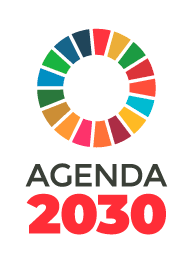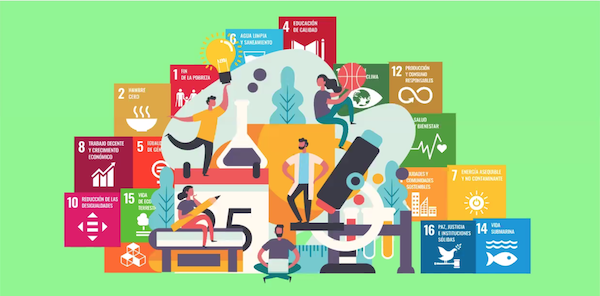SDGs: Fulfillment of the Sustainable Development Agenda
 We are committed to complying with the UnidasUnited Nations Global Agenda 2030, positively impacting the following Sustainable Development Goals according to the strategies established in Provem.
We are committed to complying with the UnidasUnited Nations Global Agenda 2030, positively impacting the following Sustainable Development Goals according to the strategies established in Provem.
Significantly reduce waste generation through prevention, reduction, recycling, and reuse activities. The concern to achieve a more sustainable solution for industrial packaging leads us to offer protective, lightweight, and resistant products, which in turn help reduce plastic consumption in the world, thus avoiding the generation of carbon footprints.
ENVIRONMENTAL
SDG 12: Our environmental practices (Ecofriendly) go beyond our products; within our daily activities we contribute to:
- Documenting and implementing environmental improvement in our processes by periodically checking their effectiveness to maintain continuous improvement and pollution prevention.
- Reduce the use of materials: by carrying out recycling practices, promoting the principle of the 3 “R’s”: Reduce, Reuse, and Recycle.
- Focus on the purchase of more energy-efficient materials and rechargeable, reusable, or recyclable products (such as ink cartridges, batteries, etc.).
- Prioritize the use of environmentally friendly cleaning products for routine maintenance and cleaning of our facilities.
- Reduce the printing of reports by prioritizing digital management.

SDG 7 Improve energy efficiency. Saving energy by:
- Turning off lighting in unoccupied spaces and equipment that is not in use, avoiding “standby” switching on.
- Using air conditioning equipment only when necessary.
SDG 6 Efficient Use of Water Resources
Water: Immediately addressing possible drips and leaks in faucets.

SOCIAL
SDG 3: Increase the number of young people who have the necessary technical and professional skills to access employment, decent work, and entrepreneurship.
In order to promote learning and the acquisition of skills in students, through professional training within the company, PROVEM maintains a collaboration agreement with universities where students carry out projects that meet the real needs of the company as part of internships for graduation, which allows them to apply their knowledge in a real work environment and acquire work habits and professional experience that will improve their employability.






